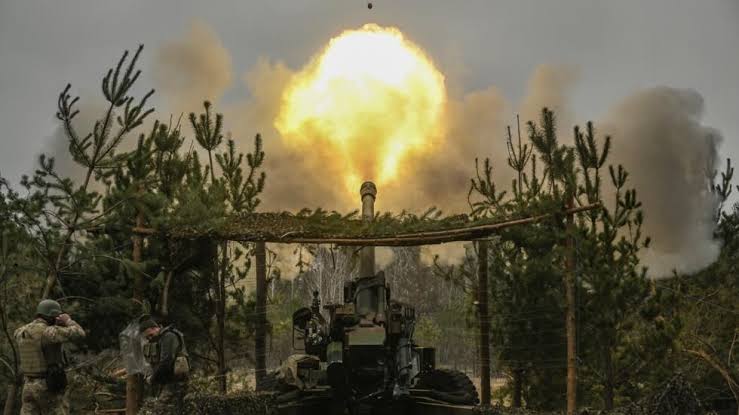Europe battles powder shortage to supply shells for Ukraine

Europe is facing a formidable challenge in providing the necessary artillery shells for Ukraine’s defense against Russian forces due to a shortage of gunpowder, with potential solutions only beginning to emerge.
French President Emmanuel Macron acknowledged the scarcity of certain components, particularly gunpowder, following a meeting of Kyiv’s allies in Paris on Monday. Gunpowder is essential for propellant charges that propel artillery shells, including the NATO-standard 155-millimeter projectiles utilized in many weapons dispatched to Ukraine.
Johann Hoecherl, a munitions expert at the German armed forces university in Munich, explained that a basic explosive artillery shell consists of three parts: a steel casing, a high-explosive main charge, and a detonator typically set to activate upon impact. Propellant charges, crucial for achieving desired ranges, have evolved from traditional powder to rods or pellets. European manufacturers like Eurenco and Nitrochemie, with operations in several countries, play a pivotal role in producing these essential components.
Addressing the shortage, France is in the process of relocating a portion of Eurenco’s production to Bourges, south of Paris. Jean-Paul Maulny, deputy director of France’s Institute for International and Strategic Relations, emphasized the significance of increasing production capacity to meet escalating demands for munitions. Challenges in sourcing raw materials, such as specific types of cotton primarily obtained from China, further compound the issue.
EU internal market commissioner Thierry Breton highlighted the importance of innovation to overcome supply chain disruptions, particularly in finding substitutes for materials like Chinese cotton. Breton revealed plans for the EU’s Act In Support of Ammunition Production (ASAP), which will provide grants to companies producing substitute ingredients for powder. These initiatives aim to enhance the EU’s artillery shell production capacity, projected to reach between 1.5 million and 1.7 million annually by year-end.
IRIS expert Maulny emphasized the unprecedented scale of the conflict, with Ukraine facing a shortage of shells while Russian forces, having secured stocks from North Korea, currently maintain adequate supplies. However, Maulny cautioned that shortages could arise for Russia in the coming months. The ongoing conflict underscores the urgent need for increased production and strategic planning to meet the demands of modern warfare, as Maulny noted, “We haven’t seen a war like this since World War II.”












